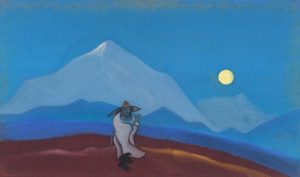This milestone also has a current connection to the elections in Turkey.
The opposition leader in Turkey, has publicly declared himself to be a member of the Alevi faith, a numerically small community with a long tradition. The Alevis have been subjected to persecution and pogroms for centuries and tend to still be in this situation. The ongoing conflict experienced by the Kurds in the countries of Turkey, Syria and Iran finds its deeper origin in the Alevi faith. Readers of this text may wish to read about this in more detail.
The foundations of the philosophy and religious beliefs of Alevism go back to the time of Zarathustra and Zoroastrian philosophy. The goal of an Alevi is enlightenment/perfection through values such as charity, modesty and patience. Humanism and universalism characterise the Alevi faith.
It is found among the Alevis in the principles for a meaningful life vie,l which can be equated with the ethical principles of Agni Yoga.
Some features and principles of this community are:
There is no religious proselytising.
Women and men are largely equal, there is no restriction on women’s lives.
All other religions are respected.
The community is hierarchical based on age and life experience.
Members of the Alevi faith fundamentally assume reincarnation of human souls and this is a feature that has survived from the time of Zarathustra.
Due to the historical and current persecution and oppression, especially in Turkey, there is a certain reluctance among the public.
Of course, historically there have been branches and narrowings in the interpretation of the religious principles of Zoroastrianism. In principle and for the most part, the above core principles have remained as a basis.
How differently religious impulses or philosophies can develop is shown by the fact that both the Alevis and Shiite Islam refer to the Prophet Mohammed and his son-in-law Ali as inspirers. At the same time, Alevism has additionally preserved the historical core impulse of Zarathustra’s teachings. Only in this way can the different development be approximately explained. Whether the Alevis see themselves as an Islamic religion or as a separate religion or philosophy has always been subject to historical fluctuations.
We conclude with the reference confirmed in the diaries of H. Roerich: Zarathustra was a significant incarnation of Mahatma Morya. His impulse lives to this day even in this numerically relatively small community of an estimated 20 million members worldwide.





